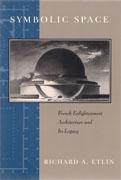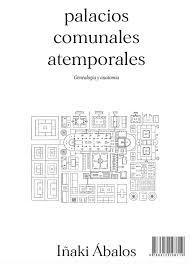SYMBOLIC SPACE. FRENCH ENLIGHTENMENT ARCHITECTURE AND ITS LEGACY

Autor/es
- EAN: 9780226220857
- ISBN: 978-0-226-22085-7
- Editorial: UNIVERSITY OF CHICAGO PRESS
- Año de la edición: 1994
- Encuadernación: Rústica
- Medidas: 23 X 15 cm.
- Páginas: 238
- Materias:
neoclasicismo
iluminismo
teoría: arquitectura y arte
espacio teoría
urbanismo
Stock en Librería. Envío en 24/48 horas
pvp 37,95 €
Exploring the social and cultural hierarchies established in 18th-century France, this volume illustrates how the conceptual basis of the modern house and the physical layout of the modern city emerged from debates among theoretically innovative French architects of the 18th-century. Examining a broad range of topics from architecture and urbanism to gardening and funerary monuments, he shows how the work of these architects was informed by considerations of symbolic space. Richard Etlin asserts the 18th-century city was a place in which actual physical space was subjected to a complex mental layering of conceptual spaces. He focuses on the design theory of Boullee and Durand and charts their legacy through the architecture of Paul Philippe Cret, Frank Lloyd Wright, and Louis Kahn. He defines the distinctive features of neoclassicism and outlines the new grammar for classical architecture articulated by theorists and architects such as Laugier, Leroy, and Ledoux. After discussing the 18th-century "hotel", revolutionary space, and the transformation of the image of the cemetary, Etlin examines the space of absence as embodied in commemorative architecture from Boullee and Gilly to Cret, Wright, and Terragni. This book provides an accessible introduction to a century of architecture that transformed the classical forms of the Renaissance and Baroque periods into building types still familiar today.





